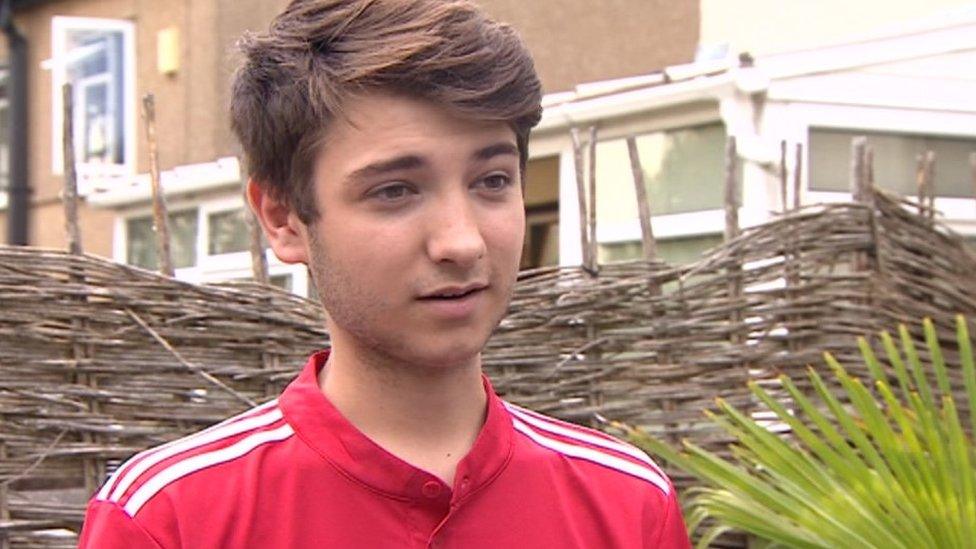When a lottery 'wins' sick babies life-saving drugs
- Published
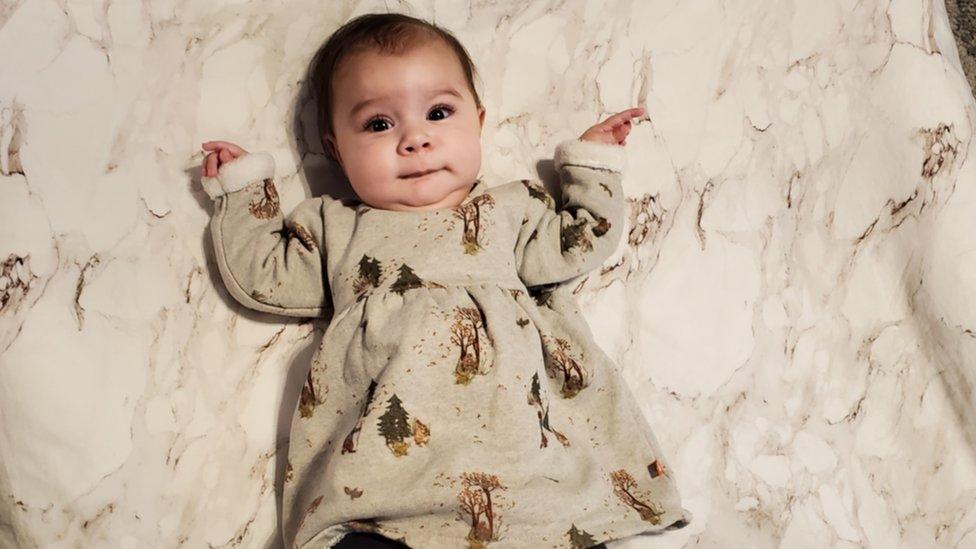
Eva Batista was diagnosed with a rare muscle-wasting disease
Eva was diagnosed with spinal muscular atrophy, a motor neuron disease, just a few weeks after her birth in August. Her parents plan to enter her in a controversial "drug lottery" in the hopes of getting access for a promising new treatment that costs $2.1m (£1.6m) per patient.
Ricardo and Jessica Batista noticed something was wrong with Eva just a couple of weeks after she was born.
The Toronto couple's "beautiful young girl" loved to play and smile but took a long time to eat. She would get tired. Her arms would fall back when they picked her up.
There was "no head control, she was very floppy," Mrs Batista recalls.
At just seven weeks, Eva was diagnosed with spinal muscular atrophy [SMA] a rare, deadly genetic muscle-wasting disease.
Between one in 6,000 to one in 10,000 children are born with SMA.
Eva is believed to be one of the youngest patients to be diagnosed with SMA Type 1, also called Werdnig-Hoffmann Disease, the most severe form of the disease the Batistas call "a nightmare".
'Not prepared for the road ahead'
Babies like Eva can face many health challenges, from muscle weakness to trouble breathing and swallowing. They may need breathing assistance or a feeding tube. The disease can be fatal if untreated.
"We did research on it but it still - when you research it - it tells you what it is and all that, but it doesn't prepare you for the road ahead and what to expect," said Mr Batista.
The Batistas' priority was getting the best care for their newly diagnosed child.
In Canada, where the couple live, they have access to Spinraza, a prescription drug taken during the patient's entire lifetime that can increase survival and motor function. It's been on the market since 2016 and is the first approved therapy to treat all types of SMA.
There is also a brand new drug - Zolgensma. It's produced by Swiss pharmaceutical giant Novartis and was recently approved by the US Food and Drug Administration (FDA) for children under the age of two.
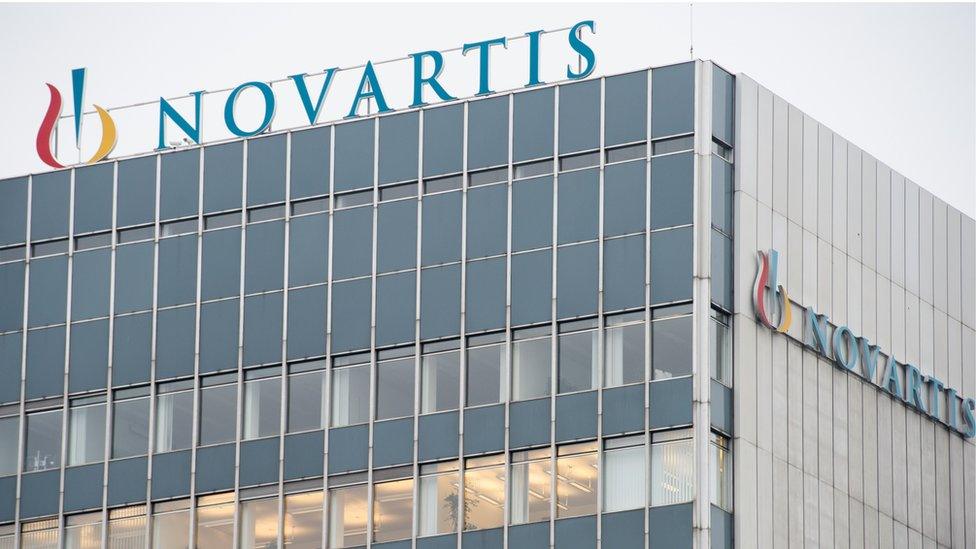
Novartis owns AveXis, which developed Zolgensma
It's a one-time prescription gene therapy touted as a potentially life-changing treatment. It's also currently the world's priciest single-dose treatment, at $2.1m per patient.
Gene therapy, at the cutting edge of health science, involves introducing genetic material into cells to compensate for abnormal genes - in the case of SMA, the faulty SMN1 gene.
In consultations with Eva's doctors, the Batista's have begun treatment with Spinraza - but they see gene therapy as their daughter's best hope.
"We contacted a couple of families in the US that have taken this gene therapy and throughout conversations with them and through the research we did we immediately came [to the decision] that that's what we needed to get her, because that's the best option, the best solution in terms of what can help her for the best results," Mr Batista said.
But for the Batistas, the multimillion dollar price tag was beyond prohibitive.
Zolgensma is not approved in Canada. The couple would need special authorisation from Health Canada, the drug regulatory agency, to gain access to the drug for their daughter in that country.
Without that authorisation, they would have to go a hospital in the US to get it administered, bringing the total cost to approximately C$4m ($3m; £2.3m).
With fundraising, the family managed to raise some C$1.8m in about four months - a feat in itself - but "we need more help", says Mrs Batista.
Patient group Cure SMA Canada says they'll be pushing for access to Zolgensma as well as another promising new experimental treatment developed by drug company Roche.
Spinraza has proven safe and effective, executive director Susi Vander Wyk says, but is not ideal for all patients, so the more options the better.
"We're excited for patients to access this - but it's not quite [there] yet," she says.
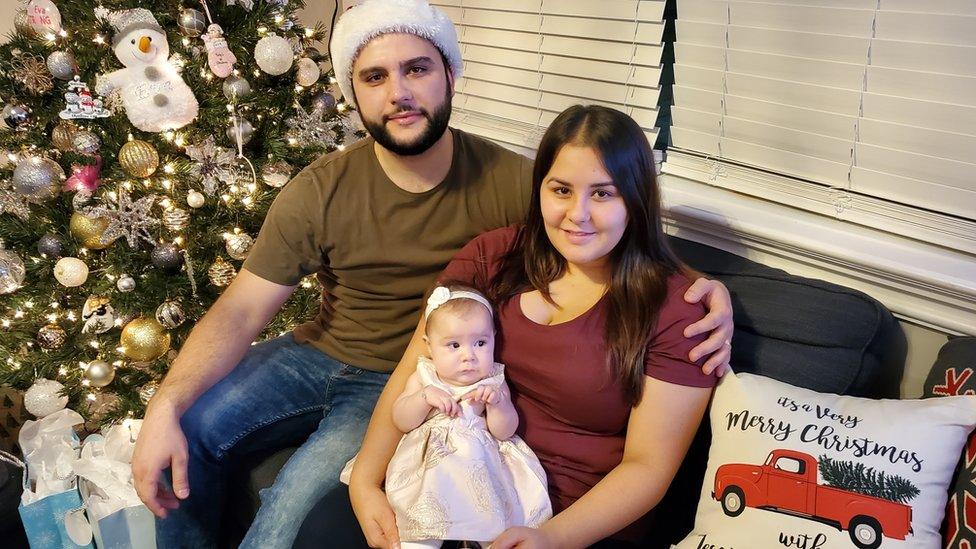
Eva's parents hope she will receive gene therapy
There is third option for the Batistas - one that depends on the luck of the draw.
When demand from families for Zolgensma spiked following its approval in the US last May, Novartis subsidiary AveXis announced a programme to provide the therapy free to some eligible SMA patients.
Drug becomes 'coveted prize'
It would give out up to 100 doses to patients who meet clinical criteria using a "blinded selection" - a lottery - every two weeks through 2020, starting on 3 February.
The firm said in December that the managed access programme was "anchored in principles of fairness, clinical need and global accessibility...that doesn't favour one child or country over another".
Novartis says the programme was developed with input from bioethicists - but it has been criticised by patient groups around the world.
Kacper Rucinski, co-founder of the UK's TreatSMA and a board Member with SMA Europe, say they will be asking the pharmaceutical firm to remove "fully or partially" the lottery element of the programme.
Allow X content?
This article contains content provided by X. We ask for your permission before anything is loaded, as they may be using cookies and other technologies. You may want to read X’s cookie policy, external and privacy policy, external before accepting. To view this content choose ‘accept and continue’.

Mr Rucinski says they support compassionate use programmes for pharmaceutical access but "here, what you are seeing is that the company says: 'Oh yes, we received your application, we see that it is needed, so we will throw a dice to see whether we should provide it or not.'
"That is basically unacceptable from the clinical point of view."
SMA Europe said in a statement the programme "will make thousands of SMA babies compete with each other for a life-saving treatment, splitting tightly knit communities and turning this experimental drug into a coveted prize."
Mr Batista says while the couple are happy some children will gain access to the drug "what are we going to say to the other kids whose lives are dependent on this? What do we say? 'Better luck next time?'"
Mr Rucinski also thinks there is a certain amount of "hype" around Zolgensma as the newest drug on the block.
"Personally we think it is a promising drug but we ask for more data," he said.
He notes questions were raised around the drug in August, when the FDA said Novartis had submitted manipulated data in its approval application, though the regulatory agency said it was confident the drug should remain on the market.
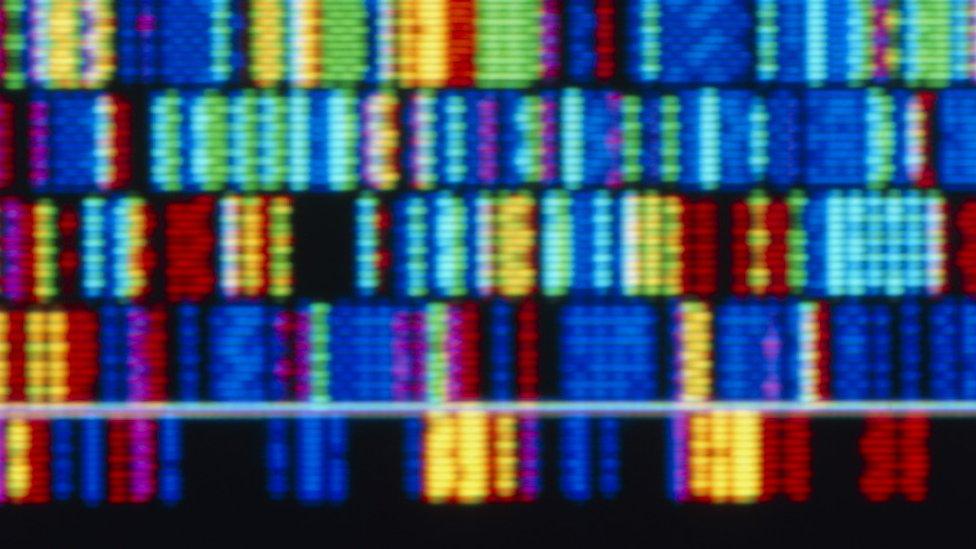
Spinal muscular atrophy is a genetic disorder caused by a loss of specialised nerve cells
SMA Europe hopes to sit down in the coming weeks to discuss the programme with Novartis - which told the BBC it's open to feedback from patients groups and health professionals to "capture learnings and help guide us as we move forward".
For the Batistas, the high-stakes lottery is a "long shot".
They are working with Eva's neurologist to enter her into the Novartis programme but with 100 doses for the whole world "to just depend only on that is too risky", says Mrs Batista.
The couple have spent much of January at Toronto's Sick Kids hospital, where the Eva is being treated for pneumonia and two other viruses.
When she gets better their focus will be on raising enough money to get her treated in the US, which would need to be done before she turns two.
"The stress level is through the roof," says her mother. "But we're doing everything, everything we can to help her."
- Published6 March 2019
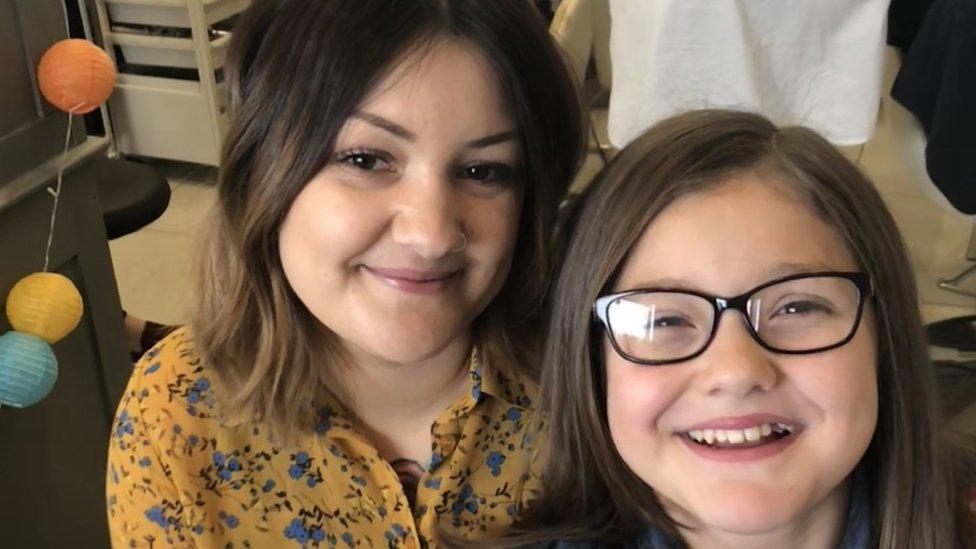
- Published18 September 2019
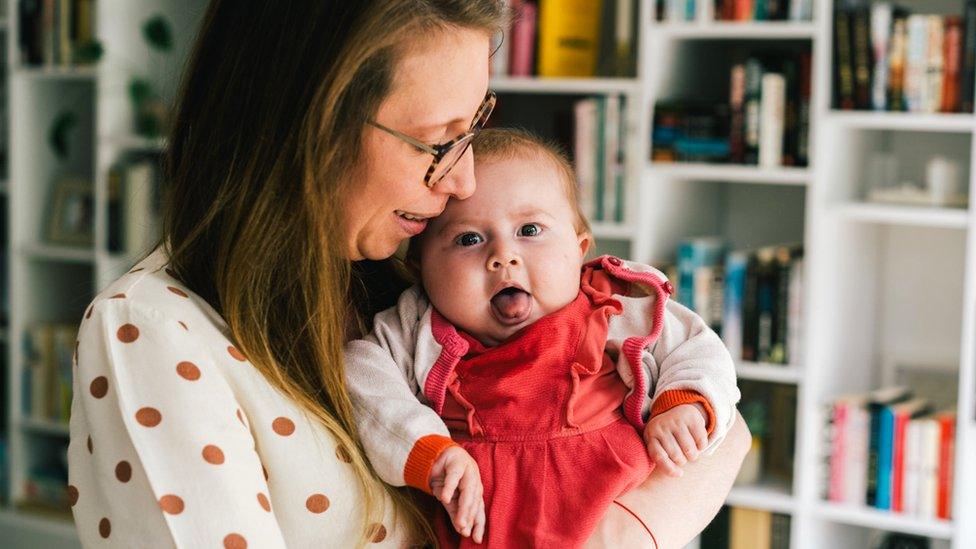
- Published2 August 2019
